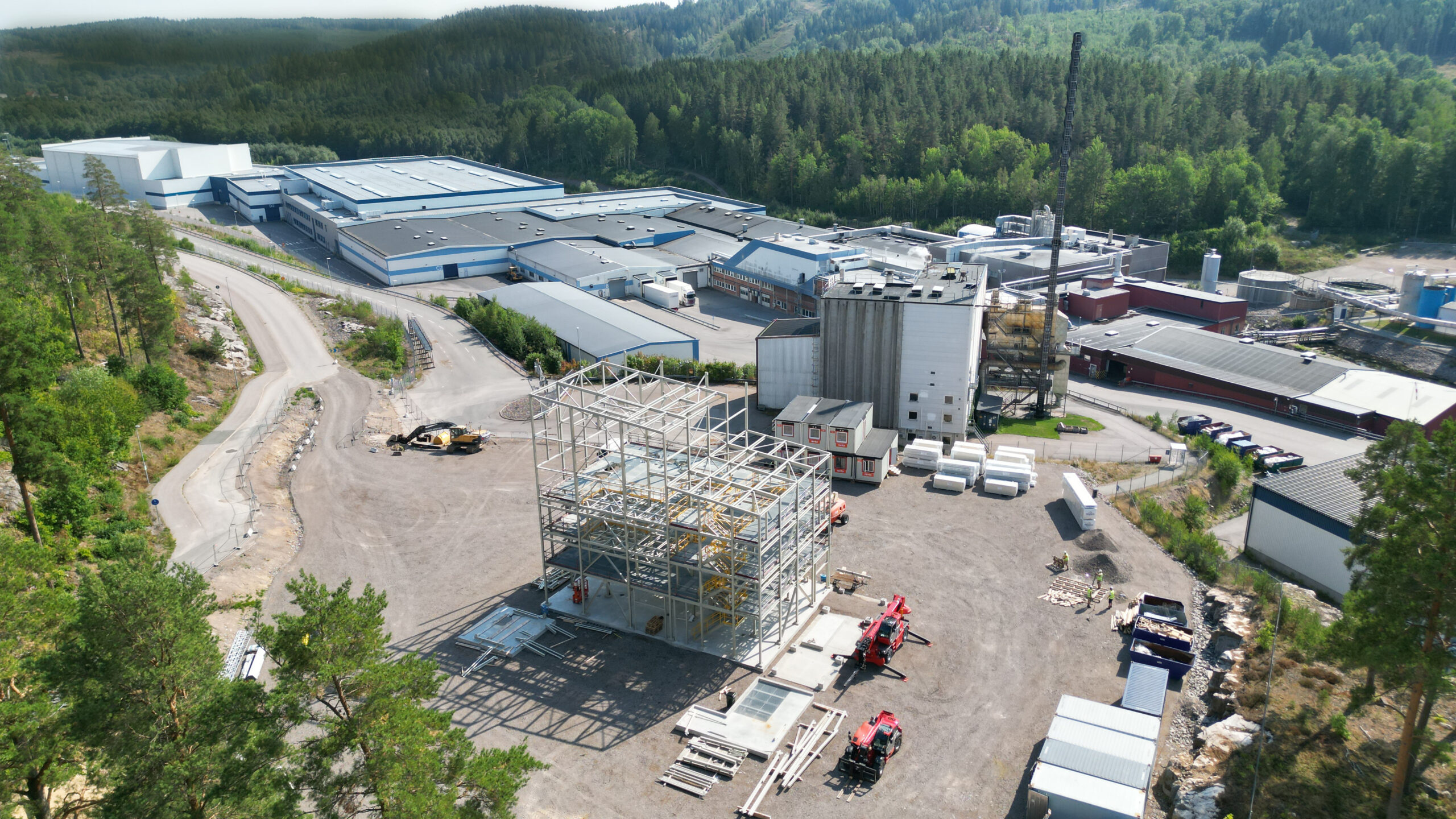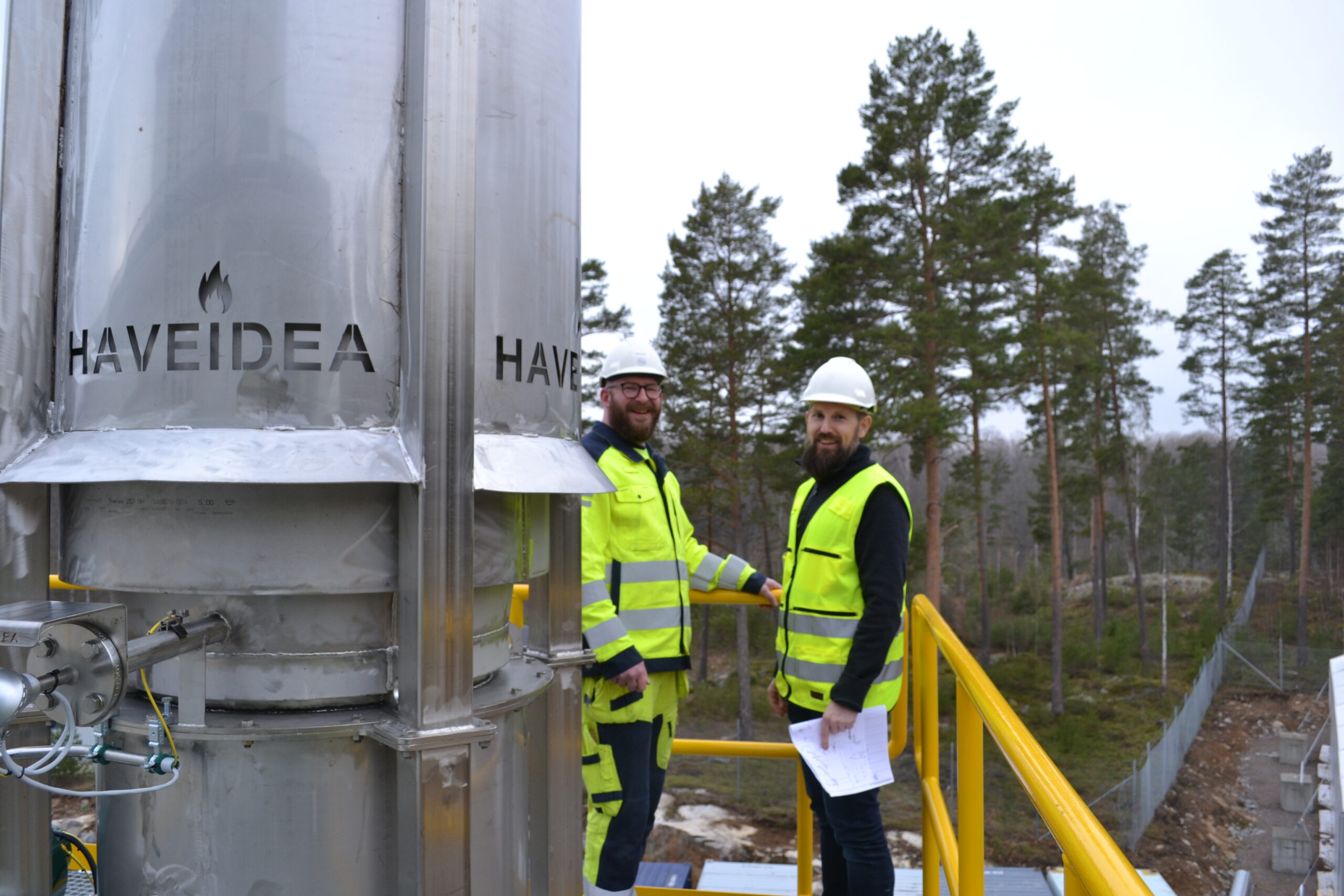Sustainability
We are committed to conducting our business in a responsible and sustainable manner, striving to leave a positive impact on everything that is touched by Meva Energy.
MITIGATING CLIMATE CHANGE
Renewable energy solution with negative emissions potential
Meva Energy provides a gasification technology that can play an important role in the manufacturing industry’s shift towards renewable energy production. This technology utilizes locally generated biogenic waste streams from the manufacturing industry, converting low-quality biomass into high-quality biogas. By adopting this approach, the industry can mitigate climate change and significantly reduce fossil greenhouse gas emissions and customer’s carbon footprint. By the combined biogas and biochar production, the technology has the potential to go beyond zero and reach negative emissions.
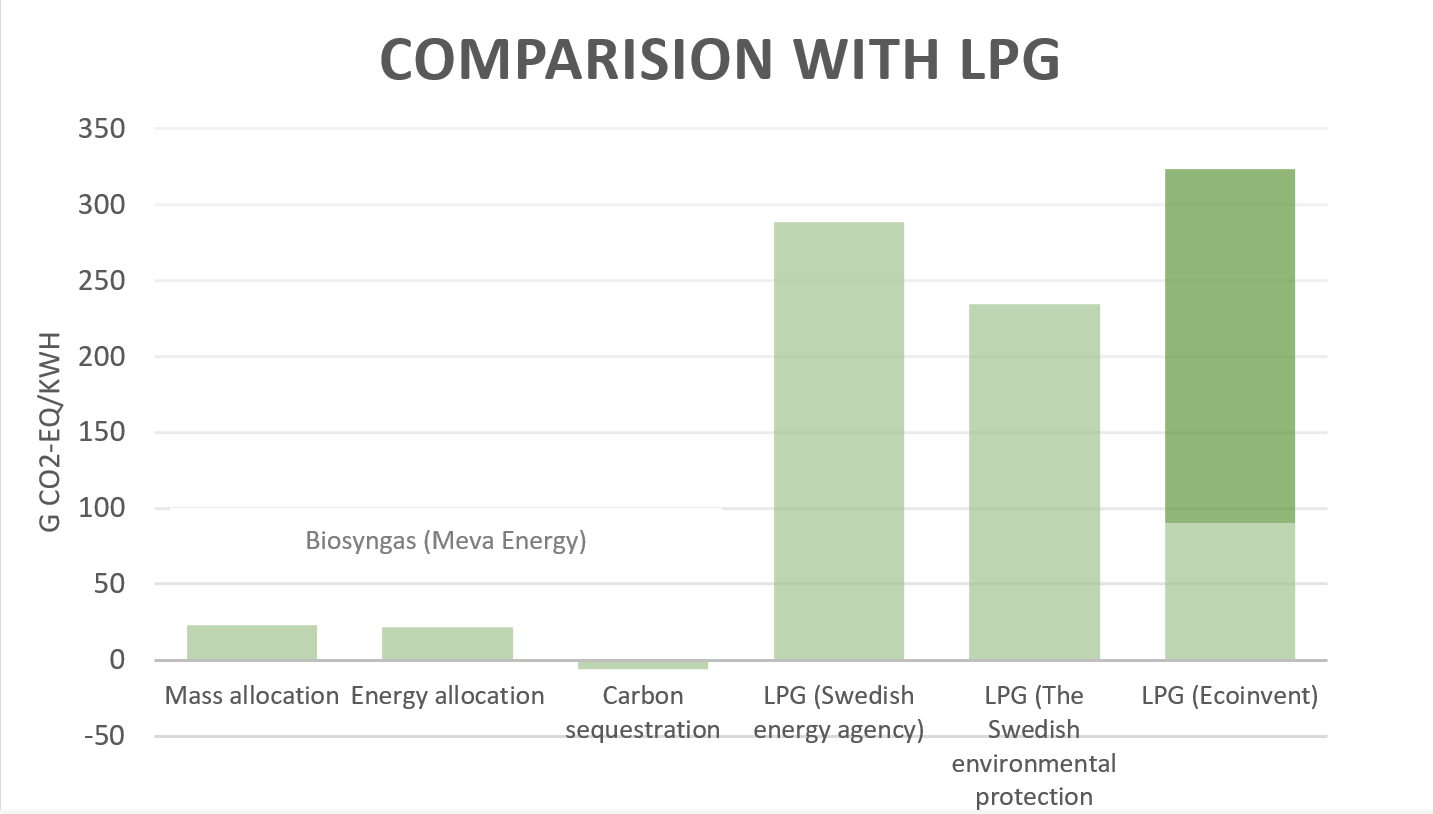
Figure 1. The three allocation scenarios of Meva Energy’s biogas compared to fossil LPG (Hedbom, H and Lundh, P (2024).
Download our Life Cycle Assessment (1) A-potential-negative-emissions-technology-LCA-results.pdf (mevaenergy.com)
VISION
"We believe in a fossil free manufacturing industry where no biomass resources are wasted, and no fossil emissions are created."
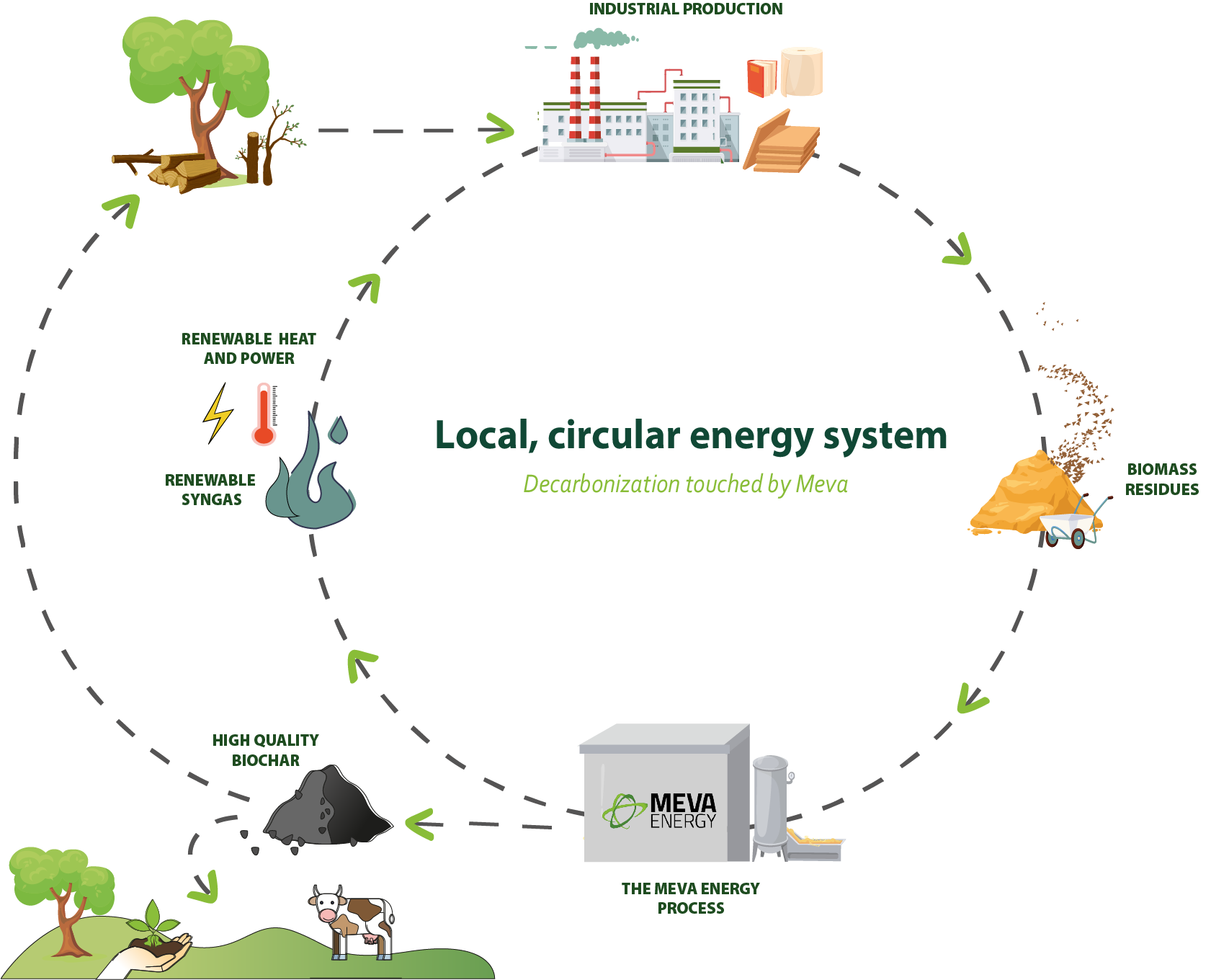
Figure 2. The business model of Meva Energy aims to create circular energy systems based on the use of locally produced biomass waste to produce high-quality renewable gas at the production site.
RESPONSIBLE USE OF RESOURCES
Biomass utilization
Providing a technology that involves the use of biomass relates to risks such as land use change, deforestation and biodiversity loss. Biomass needs to be sustainable utilized, where material, pulp and paper, fibers and food are prioritized applications and energy applications are using second generation biomass, generated from the manufacturing industry. Meva Energy's gasification technology is optimized for utilizing low-value and fine fraction biomass, which makes it possible to use e.g. contaminated engineered wood classified as waste as a feedstock to the gasification process.
In 2023, a Sustainable biomass feedstock policy was decided and developed, which states the importance of a sustainable use and sourcing of biomass residues and waste and our responsibility in evaluating available feedstocks based on all three dimensions of sustainability (environmental, social and economic). Another important part of this policy is to secure a sustainable feedstock used by our customers.
What is measured, improves
With a vision for a fossil-free manufacturing industry, understanding our products' climate impact is crucial. Meva Energy conducts greenhouse gas emissions (GHG) calculations for all new projects. The Kisa plant enhances precision in these calculations, revealing activities with the highest climate impact. This insight guides our gasification plant operations.
Aligned with our core values, we aim to map and raise awareness of emissions to minimize them. Since 2023, we report scope 1, 2, and 3 emissions as part of our annual ESG reporting to investors and management. These calculations follow the Greenhouse Gas Protocol, ensuring global standardization in measuring and managing emissions.
In 2024, a life cycle assessment of Meva Energy’s biomass gasification technology was conducted, based on ISO standards 14040/14044 from a cradle to grave perspective and as a multifunctional process, with production of mainly biosyngas with biochar as a by-product. The study has been a natural step for the company to go beyond the climate impact category and the greenhouse gas emissions calculations guidelines according to the Renewable Energy Directive (RED). In Sweden implemented and known as the Law on Sustainable criteria for biofuels, bioliquids and biomass fuels. Another reason is to look at the gasification technology as a multifunctional system, where biomass residues or waste is used to produce both biosyngas and biochar.
These activities give a better understanding with an overall aim to improve.
RESPONSIBLE BUSINESS
HSE management
Health, safety and environmental issues aims to protect human health and the environment. As part of the company’s development, with establishment and commissioning of a commercial facility, the importance of HSE management and control are prioritized and governed by legislation and applicable regulations.
Diversity, equity and inclusion
Meva Energy’s performance as a company is based on the employees’ performance as individuals, a healthy company with possibilities for development are strong driving forces.
Diversity, equity and inclusion means a workplace free from discrimination and ensuring that all employees have access to the same resources and opportunities at the company, without regard to such parameters as gender, marital or parental status, ethnic or national origin, sexual orientation, religion or beliefs, political affiliation, age, or disability. In the newly established Diversity, equity and inclusion policy, the company states to take responsible and conscious actions and decisions towards an equal and fair workplace. Working actively with diversity, equity and inclusion will benefit the company and its ability to become more innovative, visible and attractive for employees, customers, suppliers and investors.
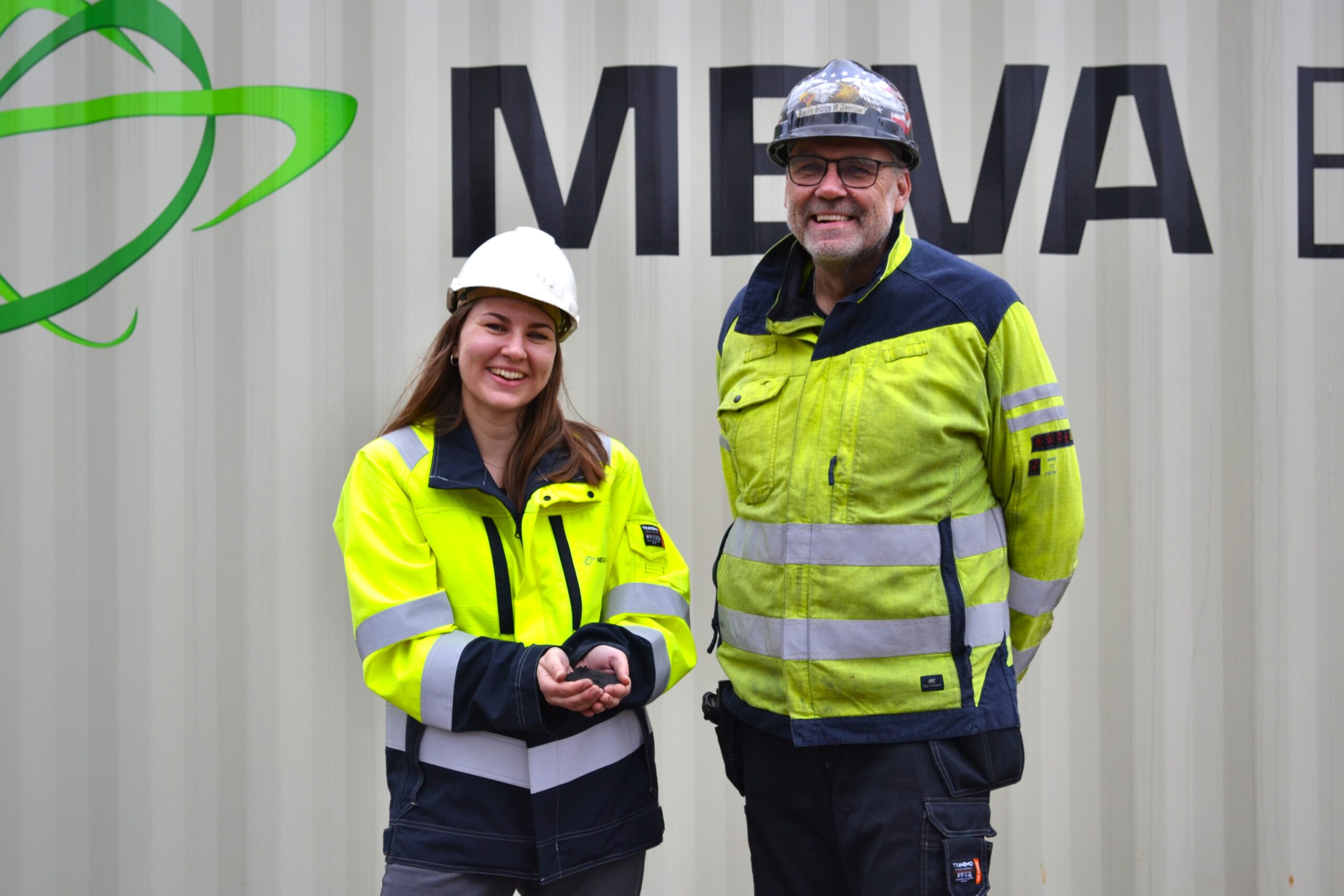

Supply chain management
Through our supply chain, we affect both people and environment locally and globally. That is why we need to collaborate with our suppliers to get access to data and to learn about their sustainability issues and journeys. As part of the company’s development, long-term business relationships are of utmost importance and we are establishing statements and working practices, which are being implemented in our supply chain.
Business policies and strategies
- Environmental policy
- Work environment policy
- Sustainable feedstock policy
- Diversity, equity and inclusion policy
- IT policy
- Whistle blower policy
- Sourcing strategy
- Anti-corruption policy
- GDPR – privacy policy
- Finance policy
- Code of conduct - supplier
- Staff manual, incl. travel policy, alcohol, and drug policy

